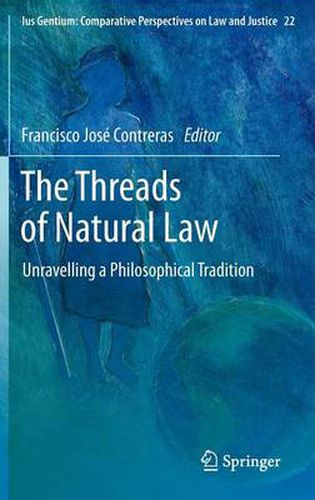Readings Newsletter
Become a Readings Member to make your shopping experience even easier.
Sign in or sign up for free!
You’re not far away from qualifying for FREE standard shipping within Australia
You’ve qualified for FREE standard shipping within Australia
The cart is loading…






This title is printed to order. This book may have been self-published. If so, we cannot guarantee the quality of the content. In the main most books will have gone through the editing process however some may not. We therefore suggest that you be aware of this before ordering this book. If in doubt check either the author or publisher’s details as we are unable to accept any returns unless they are faulty. Please contact us if you have any questions.
The notion of natural law has repeatedly furnished human beings with a shared grammar in times of moral and cultural crisis. Stoic natural law, for example, emerged precisely when the Ancient World lost the Greek polis, which had been the point of reference for Plato’s and Aristotle’s political philosophy. In key moments such as this, natural law has enabled moral and legal dialogue between peoples and traditions holding apparently clashing world-views. This volume revisits some of these key moments in intellectual and social history, partly with an eye to extracting valuable lessons for ideological conflicts in the present and perhaps near future. The contributions to this volume discuss both historical and contemporary schools of natural law. Topics on historical schools of natural law include: how Aristotelian theory of rules paved the way for the birth of the idea of natural law ; the idea’s first mature account in Cicero’s work; the tension between two rival meanings of man’s rational nature in Aquinas’ natural law theory; and the scope of Kant’s allusions to natural law . Topics on contemporary natural law schools include: John Finnis’s and Germain Grisez’s new natural law theory ; natural law theories in a broader sense, such as Adolf Reinach’s legal phenomenology; Ortega y Gasset’s and Scheler’s ethical perspectivism ; the natural law response to Kelsen’s conflation of democracy and moral relativism; natural law’s role in 20th century international law doctrine; Ronald Dworkin’s understanding of law as a branch of political morality ; and Alasdair Macintyre’s virtue -based approach to natural law.
$9.00 standard shipping within Australia
FREE standard shipping within Australia for orders over $100.00
Express & International shipping calculated at checkout
This title is printed to order. This book may have been self-published. If so, we cannot guarantee the quality of the content. In the main most books will have gone through the editing process however some may not. We therefore suggest that you be aware of this before ordering this book. If in doubt check either the author or publisher’s details as we are unable to accept any returns unless they are faulty. Please contact us if you have any questions.
The notion of natural law has repeatedly furnished human beings with a shared grammar in times of moral and cultural crisis. Stoic natural law, for example, emerged precisely when the Ancient World lost the Greek polis, which had been the point of reference for Plato’s and Aristotle’s political philosophy. In key moments such as this, natural law has enabled moral and legal dialogue between peoples and traditions holding apparently clashing world-views. This volume revisits some of these key moments in intellectual and social history, partly with an eye to extracting valuable lessons for ideological conflicts in the present and perhaps near future. The contributions to this volume discuss both historical and contemporary schools of natural law. Topics on historical schools of natural law include: how Aristotelian theory of rules paved the way for the birth of the idea of natural law ; the idea’s first mature account in Cicero’s work; the tension between two rival meanings of man’s rational nature in Aquinas’ natural law theory; and the scope of Kant’s allusions to natural law . Topics on contemporary natural law schools include: John Finnis’s and Germain Grisez’s new natural law theory ; natural law theories in a broader sense, such as Adolf Reinach’s legal phenomenology; Ortega y Gasset’s and Scheler’s ethical perspectivism ; the natural law response to Kelsen’s conflation of democracy and moral relativism; natural law’s role in 20th century international law doctrine; Ronald Dworkin’s understanding of law as a branch of political morality ; and Alasdair Macintyre’s virtue -based approach to natural law.